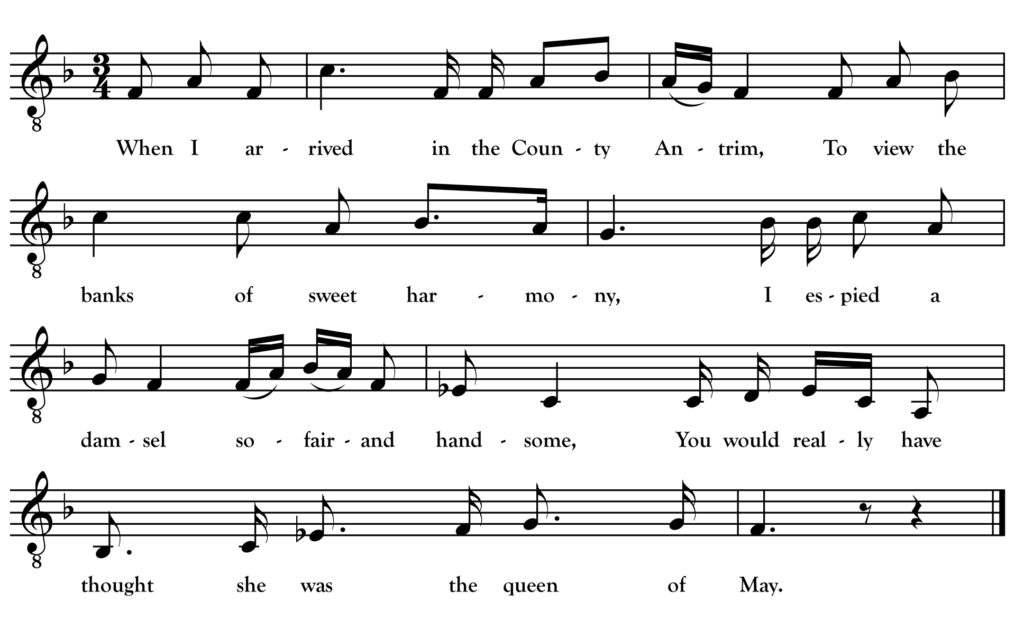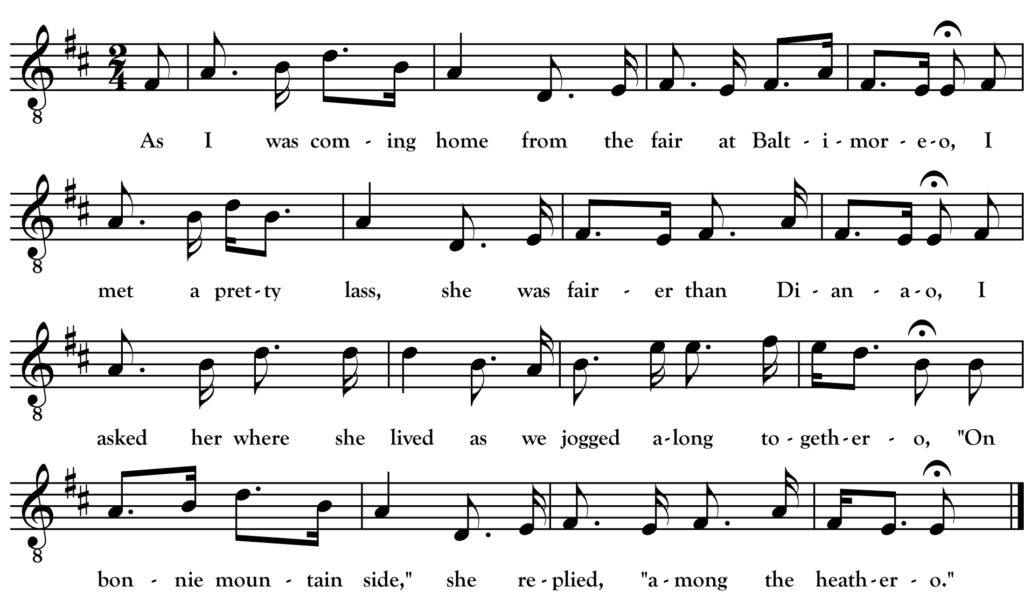George Riley

When I arrived in the County Antrim,
To view the banks of sweet harmony,
I espied a damsel so fair and handsome,
You would really have thought she was the queen of May.
I stepped up to her, I did salute her,
I gently asked her to be my wife,
Most modestly she made me an answer,
“Kind sir, I choose a sweet single life.”
“You fair young creature, you pride of nature,
What makes you differ from all female kind?
Your cherry cheeks, your eyes like amber,
It seems to marry you must incline.”
“’Tis youth and folly makes young folks marry,
And when you’re married, then you must obey,
Since what can’t be cured must be endured,
So farewell, Riley, I am going away.”
We have another song this month from the fascinating repertoire of Carrie Grover (1879-1959) of Maine. Grover learned this song from her Irish-Canadian mother while growing up in Nova Scotia. The above transcription is my own based on a recording of Grover made in 1941 by Sidney Robertson-Cowell that is archived at the American Folklife Center at the Library of Congress.
Grover’s “George Riley” is a pared down variant of a relatively common Irish song “O’Reilly from the County Leitrim/Kerry/Cavan” (the county changes from version to version just as Grover’s version moves it to County Antrim). Most Irish versions include the man’s wish to have his beloved “in Phoenix Island” or to sail her “over to Pennsylvania.” The only other North American version I have tracked down is one from a remote fishing village in Labrador which is similar to the Irish texts. Grover’s is short and to the point and she uses a melody unique from what I found in Irish collections.

